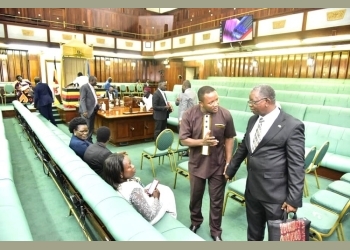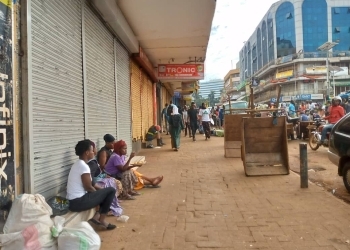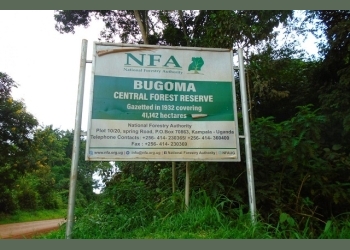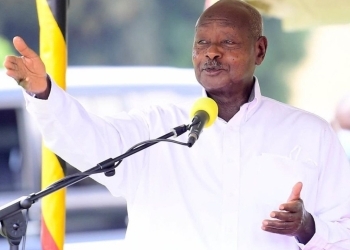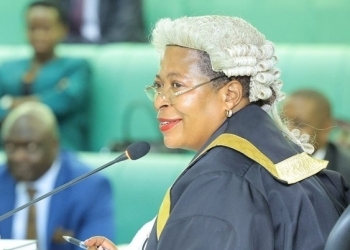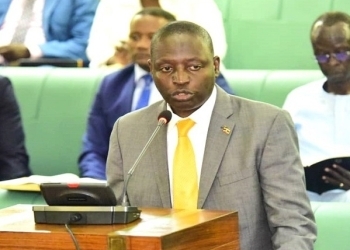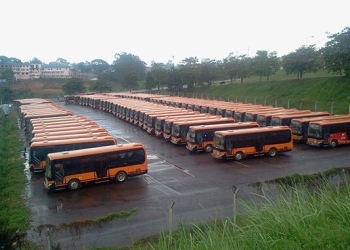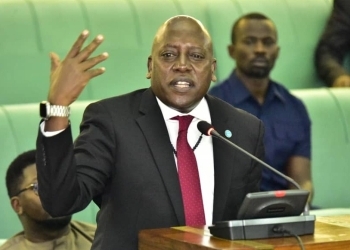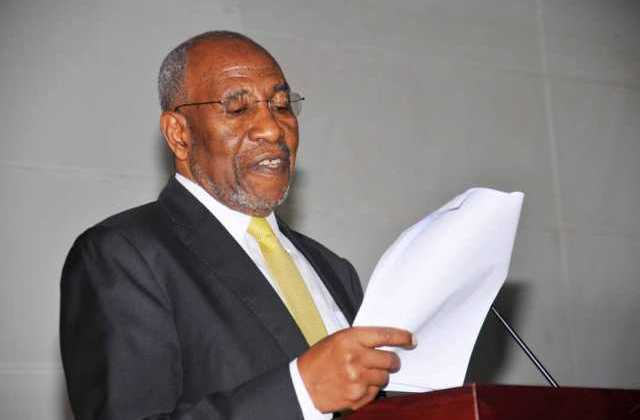
The President Yoweri Museveni was re-elected to run the country in 2016 with a clear mandate to deliver on key development and social goals. As that term comes to an end, key government ministries are highlighting the that have been
made in the implementation of the party manifesto.
Today, we take a look at the Office of the Prime Minister (OPM), Finance, Gender and Justice ministries. Office of the Prime Minister’s role in the implementation of the NRM Manifesto
- Security, good governance and democracy
- Rehabilitation of war-ravaged/ impacted areas
- In order to promote equitable development, the NRM continued with the following programmes:
- Implementation of rehabilitation programmes under the Peace Recovery Development Plan
(PRDP), The Third Northern Uganda Social Action Fund (NUSAF3), Karamoja Integrated
Development Programme (KIDP) and the Luwero-Rwenzori Development Plan (LRDP), among
others
- Paying civilian veterans in Luwero-Rwenzori region an appreciation package (Akasiimo)
- Continued to support the gradual re-stocking of all the formerly war-ravaged /impacted
and conflict areas
- Continued with the provision of appropriate technologies, especially ox-ploughs to support the commercialisation of agriculture in north, north-western and north-eastern Uganda
- Continued to compensate those who lost cattle and other properties during insurgencies
- Ensuring the expeditious revitalisation of the socioeconomic infrastructure of
Teso, which was destroyed by insurgency and cattle rustling, using a separate framework,
specifically established to handle the recovery of Teso sub-region.
- Implementing programmes for Bunyoro and Busoga sub-regions, which were impacted by the war.
- Continued with the construction of multi-purpose water reservoirs (mini lakes) in catchment areas which have already been identified for human consumption, irrigation, farming and livestock, in formerly war-ravaged and conflict areas, including Karamoja.
COMBATING CORRUPTION
- Barazas were held in districts, supervised by Resident District Commissioners and the OPM political leadership. During the Barazas, citizens are given information on Government programmes, policies and projects implemented in their areas. This is followed by asking citizens to acknowledge whether projects for which funds were meant are either in place or were not implemented. Action is taken against officials who fail to account.
PUBLIC AND PRIVATE SECTOR INSTITUTIONAL DEVELOPMENT
- Strengthening institutional framework for implementation of government programmes
- Operationalising the Prime Minister’s Delivery Unit (PMDU)
THE MANDATE OF THE OFFICE OF THE PRIME MINISTER
Article 108 A of the Constitution mandates the Prime Minister to:
- Be the Leader of Government Business in Parliament and be responsible for the coordination and implementation of government policies across Ministries, Departments and other public institutions.
- Perform such other functions as may be assigned to him or her by the President or as may be conferred on him or her by the Constitution or by law.
ROLE IN IMPLEMENTATION OF MANIFESTO
OPM’s role in implementation of the NRM Manifesto is on two
fronts;
Government wide co-ordination, Monitoring and Evaluation
This first part of OPM’s mandate empowers the Rt. Hon Prime Minister to make Government
more effective and get results for better service delivery.
The main co-ordination functions are in the areas of:
- Policy co-ordination;
- Monitoring and evaluation; and
- Co-ordination of the legislative agenda
- Prime Minister’s Delivery Unit(PMDU)
- Implementation of special programmes (i.e. disaster, Refugees and Affirmative Action Programmes)
This second part highlights the actions that OPM undertakes in the areas of:
- Special affirmative action programmes management and
- Refugee protection and management.
- The Special Affirmative Action ProgramMEs implemented by the OPM include:
- Northern Uganda Rehabilitation
- Karamoja Affairs
- Luwero Rwenzori Triangle
- Teso Affairs
- Bunyoro Affairs.
- Busoga Affairs
OPM's ACHIEVEMENTS IN IMPLEMENTATION OF THE NRM MANIFESTO COMMITTMENTS
A rehabilitation of war-ravaged/ impacted areas
- Supported livelihood /economic empowerment programmes for the vulnerable groups:
- Funded 7,383 sub-projects in the 66 District Local Governments covered by NUSAF III project under the Improved Household Income Support Project (IHISP) sub-component. This has benefited 93,306 direct beneficiaries (out of which 34,860 males and 58,446 females). The enterprises funded include fish cage farming, cassava production, ground nuts production, dairy cows and tree nursery establishment and management, etc.
- Funded 2,649 Labour-Intensive Public Works (LIPW) sub-projects in the NUSAF III project (i.e, opening of community access roads, environmental protection by planting of community trees, etc). Participants in the LIPW receive cash in return for their participation to enable them to increase their community assets. The LIPW sub-projects have benefited 302,711 direct beneficiaries (Out of which 135,513 males and 166,199 females).
- Funded 570 self-help groups(SHGs) with revolving funds under Sustainable Livelihood Pilot (SLP) in 168 villages of Packwach, Gulu, Kitgum, Lira, Soroti, Masindi, Kotido, Butaleja and Kapchorwa. The SLP is benefiting 14,644 direct beneficiaries (Out of which 3,666 males and 10,998 females). The SHGs are now implementing their business enterprises with alot of success stories in terms of increased savings, communities being engaged in businesses,
confidence built among women beneficiaries, etc.
- Improved the socio-economic status for the people of Karamoja sub-region through the
implementation of the Drylands Integrated Development Project; Construction of three farmers’ training and demonstration centres. Construction of green houses at three sites, Providing 5,260 farmers with improved and drought-resistant seedlings. Distribution of 635 gala breeds of goats and 148 improved breeds of Jersy bulls, sahwal and Friesian breeds to farmers/households. Establishing four fully equipped four artificial insemination (AI) centres. Fencing off and improving with hay 183 hectares of grazing land. Establishing six livestock
mobile veterinary clinics. Rehabilitation of 32.5km rural roads, maintenance of 123.8km rural roads, construction of 15km community access rural roads, completion of phase 1, three
blocks. Four units of teachers housing blocks (12 teachers’ houses), completion of four out of the planned six dormitory blocks, with 12 dormitories with a capacity of 36 girls per dormitory. Completion of four
blocks of three classrooms, chain link fencing two out of the four schools and 12 classrooms, four staff rooms and four office blocks. Completion of eight rainwater harvesting systems and provision of scholastic materials (textbooks) to 15 primary schools, and with an average of 2,300 pupils
- Supported 3,762 community driven enterprises/micro-projects and 343 Parish Community Associations (PCAs) to enhance household incomes and financial inclusion for youth, women, and other Vulnerable groups
- Procured and distributed 69,957 cattle for the gradual restocking programme for northern Uganda.
- Procured and distributed 12,228
cattle (heifers and bulls) and 500
improved he goats for farmers in
the Karamoja sub-region.
Paid one off gratuity (Akasiimo) to 74,060 civilian veterans.
- Completed civil construction works for the education infrastructure in the Karamoja sub-region -16 dormitories fully furnished with beds for retention of girls at school in Karamoja and eight kitchens in (Amudat, Nakapiripirit, Nabilatuk, Moroto, Kotido and Abim districts)
- Supported Namalu Prisons to produce 1,254 MT of grain for the Primary school feeding programme in the Karamoja subregion.
- Constructed 127 valley tanks/ dams/water sources in conjunctionwith Ministry of Water and
Environment and provided irrigation water systems to 8 selected farmers
- Completed civil construction works for Butaleja Farmers Produce Store, Luwero-Rwenzori regional offices, residential house for the Alur King and commenced construction of the Teso Affairs regional office in Soroti
- Provided production tools/farm implements:
- Procured and distributed 144,216 hand hoes and 83,121 iron sheets.
- Procured and distributed 2,450 ox-ploughs and 5,000 spray pumps
- Procured and distributed 6,235 assorted seedlings
- Constructed 10 cattle crushes in Karamoja sub-region for vaccination and spraying
- Improved livelihood for refugees and host communities through the implementation of Development Response to Displacement Impact Project (DRDIP) by constructing 460 classrooms, 5 dormitories, 3 laboratory blocks, 237 blocks of 5 stance latrines, 10 wards, 23 blocks of health workers houses,279.8km of community roads, 4 water supply systems, 28 blocks of teachers houses, supplying 12,320 desks, renovating 14 classrooms and supporting 1,315 households with non-traditional livelihoods and 3,206 households with traditional households. These facilities are enjoyed by both refugees and the host communities.
- Strengthened the operations of the National Emergence Coordination and Operations Centre (NECOC) that enabled the country to detect and respond to the increasing occurrence of disasters. Mapping and profiling of hazard risks of all districts in the country was completed and disseminated to all stakeholders to guide development planning of Local Governments and MDAs
- Constructed 291 houses in Panyadoli Resettlement Camp in Kiryandongo, where 2,037 people from landslide victims in the Elgon region were resettled
- Completed civil construction works for the initial phase of the Food and Non Food Commodity Store at Namanve industrial park. Procured and distributed 11,020MTs of food and 73,300 assorted Non- Food Commodities to 109 districts affected by disasters.
- Trained District Disaster Management Committees (DDMCs) and District Disaster Preparedness
Committees (DDPCs) in one hundred four (104) districts
- Completed civil construction works for 241 houses which were used to resettle 2,058 people from Bududa, Namisidwa, Manafwa, Sironko and Bulambuli Districts.
- The following civil construction works for improving the productive infrastructure have been planned over the Medium Term under the Development Initiative for Northern Uganda (DINU);
- Upgrading of the Atiak–Laropi (65.8km) road to bituminous standard, procurement for workscontractor were completed and acquisition of right of way completed for section 1 (30km). Approval was obtained from the Chief Government Valuer for the valuation report for section 2 (36km)
- Construction of Gulu logistics hub. Civil works for the Construction of the proposed Gulu Logistics were awarded to Ambitious Construction Company Limited and contract signed. Site handover was supposed to
have been done on 21st February 2020 which was affected by the COVID-19 Pandemic
- Rehabilitation of five valley tanks in Kotido in the sub counties of Kacheri, Kotido, Panyangara, Kaabong and Loyoro.
PUBLIC AND PRIVATE SECTOR INSTITUTIONAL DEVELOPMENT
Strengthening institutional framework for implementation of Government programmes
- Enhanced co-ordination of Government through the following platforms: Presidential Investors Round Table (PIRT); National Partnership Forum (NPF); Sustainable Development Goals (SDGs)-2030 Agenda; Inter Agency Co-ordination (OWC, Water for Production, Land Conflicts, etc.); Nutrition; PSM
etc. Through these platforms, the following achievements were realised:
- OIRT: working with PIRT TWG up to 95% of the recommendatons were achieved.
- Fast-tracked investments in infrastructure for the first oil production, i.e.; Ferry from Panyamur (Pakwach) to Bulisa, Kabale Airport in in Hoima, Refinery in Hoima, pipeline and Tanzam Route/Southern route and water
- The lead investor, the Albertine Graben Refinery Consortium is in place since 2018 and the project framework agreement already signed
With the help of the PIRT Technical Working Group, the number of Tourists visiting
our National parks increased from 215,558 in 2015 to 325,345 in 2018 and the revenue increased from sh24b to sh86b in the same period
- The one-stop centre for investors has been established at Uganda Investment Authority and
is functional with the presence of all institutions involved in investment licensing
ii. National Partnership Forum. Agreed with Local Development Partners Group (LDPG) priority
areas for development of which 90% are already achieved
iii. Nutrition.
• Stunting reduced from 33% in 2011 to 29% in 2017
• Malnutrition in Karamoja subregion reduced by 11%
iv. SDGs
• Established the SDG secretariat in OPM to fast track the implementation of the SDGs
• Developed the SDGs coordination roadmap to guide the implementation SDGs
• Working through the Data Technical Working Group coordinated the alignment of SDG indicators to the NSIs v. PSM
• Developed the PSM Sector Development Plan
• Co-ordinated and compiled the development PSM Sector BFP 2019/20 in line with PSM Sector Development Plan and NDP II
OPERATIONALISING THE PRIME MINISTERS DELIVERY UNIT (PMDU)
Operationalised the PMDU which has so far:
- Introduced the biometric registration system in 8 district hospitals, 29 Health Centre IV and 189HC IIIs in the 22 PMDU focus districts in Eastern Uganda resulting into increased health workers attendance from 51% in 2016 to 93% in 2018
- Supported establishment of policy framework for tools to ensure tracking of teacher presence within 20 PMDU focus districts. This resulted into reduction in teacher absenteeism from 15% in 2015 to 4% in 2018
- Developed a state of infrastructure map and system for routine tracking of flagship infrastructure projects for timely updates to the Government on the progress of implementation
- Introduced the service delivery partnerships forums across the sectors working as “interministerial task teams” and across the districts known as “regional stakeholder forums” with the objective of easing communication and unblocking constraints to effective service delivery
- Introduced the Delivery Lab Methodology, which has been adopted for key Government priorities. For instance, the 10-year Coffee Development Plan which was launched in 2018 by HE the President was prepared using the Lab methodology). The coffee export is expected to reach 5.1 million bags by October 2020 from 3.5 million bags in 2015.
CHALLENGES
- Increased occurrence of disasters (drought, floods, landslides/mudslides,
- This has greatly constrained OPM’s capacity to respond amidst the
resource constraints
- The outbreak of the COVID-19 pandemic
- This has greatly affected implementation of a number of planned community livelihood enhancement projects for all the projects
- Budgetary shortfalls
- Affected implementation of key priorities under northern Uganda
- Difficulties in effectively presiding over government strategic coordination
programmes and activities.
- Affected implementation of planned activities in the work plan
- Increased occurrence of disasters
(drought, floods, landslides or mudslides)
- Mapping and profiling of hazard risks of all districts in the country is
undertaken on a regular basis and disseminated to all stakeholders to guide development planning of Local Governments and MDAs
- Conducting regular assessments, providing relief and relocation of communities at risk
- Out break of the COVID-19 pandemic
- Continue supporting the interministerial national taskforce and the national political taskforce in addressing the Government post- COVID-19 lockdown recovery plan. OPM will follow up and assess the implementation of the standard operating procedures and the functionality of the district COVID
taskforce committees.
- Implementation guidelines have been developed and disseminated to
the District Local Governments and communities which detail adjustments to be followed to mitigate the spread of COVID-19
- For projects like NUSAF 3, which, according to the financing agreement, was supposed to end in February 2021, due to the effect of COVID-19 on the project activities, a no-cost extension of six months has been granted by the
World bank for the remaining work, up to June 2021
- Budgetary shortfalls
- Reprioritisation of the scarce resources during the planning and execution cycle
- Applying efficiency measures to realise value for money
- Continuous engagement with MFPED for additional resources
- OPM’s performance in the implementation of the NRM Manifesto is rated at 85%, based on the following:
- performance of the key projects against the targets in the manifesto;
- OPM has put in place all the requisite structures for the effective implementation of the manifesto
- Improved capacity to co-ordinate Government and other stakeholders to respond to disaster occurrences and other emergencies
COMBATING CORRUPTION
- Produced four Government Annual Performance Reports (GAPR) and five Government Half Annual Performance Reports (GHAPR) for FYs 2015/16, 2016/17, 2017/18 and 2018/19. This was followed by fi ve Government retreats to discuss the reports and propose corrective measures to
improve performance. Arising from the previous tracking of Government performance over the last four years, we have achieved the following:
- Improved performance of MDAs on average from 58% to 64% at output level and from 53% to 56% at outcome level
- Improved implementation of public investment projects to 58% of the targets as compared to 38% before
- Reduced commitment fees on borrowed funds by half from US$ 26m to US$13m by June 2018
- Tracking the performance of MDAs on the manifesto commitments and SDGs in the GAPR
- Conducted the Local Government Performance Assessments for 2017/18 (covering 144 Local Governments), where constraints to effective service delivery in the thematic areas of education, health, water, environment and natural resources, human resource, procurement and accountability were identified and policy recommendations made to improve performance. The following are some of the achievements:
- Improved accountability for funds in LGs. There was no LG with an “adverse” or “disclaimer” audit opinion over the last two years of the LG assessments. For instance, for FY 2017/18 out of the total 162 Higher Local Governments (HLGs) assessed NONE had qualified opinion compared to 7% for FY 2016/17.
- Increased involvement of LG councils and their respective committees in governance, oversight, transparency and participation from 67% in FY 2016/17 to 83% in FY 2017/18. This enabled HLGs in identification of projects and monitoring their implementation
- Improved inspection of schools: During FY 2016/17 14% of both private and public schools were inspected at least once a term compared with 65% for FY 2017/18
- Monitored the implementation of externally funded projects across Government, which revealed the following emerging
issues;
- There was improvement in average disbursement from 28% in June 2016 to 41% in June 2018.
- Acquisition of right of way and land compensation are a major challenge especially for large infrastructure projects in energy, water and works and transport.
- Poor project management (preparation/planning, execution and sustainability) persists in sectors implementing infrastructure projects
- Conducted District level and Sub-County Accountability Foras (Barazas) in 155 District Local Governments by March 31, 2020. The Baraza programme is an effective tool in empowering communities with information about public and service delivery programmes in their localities. The Barazas are supervised by the OPM political leadership
- Social Accountability systems have been established under NUSAF3 and DRDIP a total 1,298 Community Monitoring groups established.
- Citizens’ engagement through grievance handling mechanisms. So far 980 grievances have been handled for both NUSAF3 and DRDIP projects in collaboration with Inspectorate of Government.
ALLEGIANCE
OPM will continue to support the realisation of government priorities over the next five years (Vision 2040, NDP 3, the ruling party Manifesto Commitments) whose ultimate goal is to transform the country to prosperity. OPM in the execution of its mandate has already strengthened the institutional mechanisms and systems for effective service delivery, which have ensured real time tracking of all MDAs and LGs performance to achieve accelerated implementation of government programmes, faster decision making to facilitate investment, and, above all, improved service delivery to our people.
